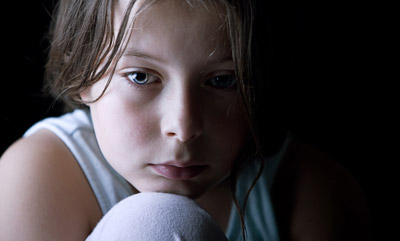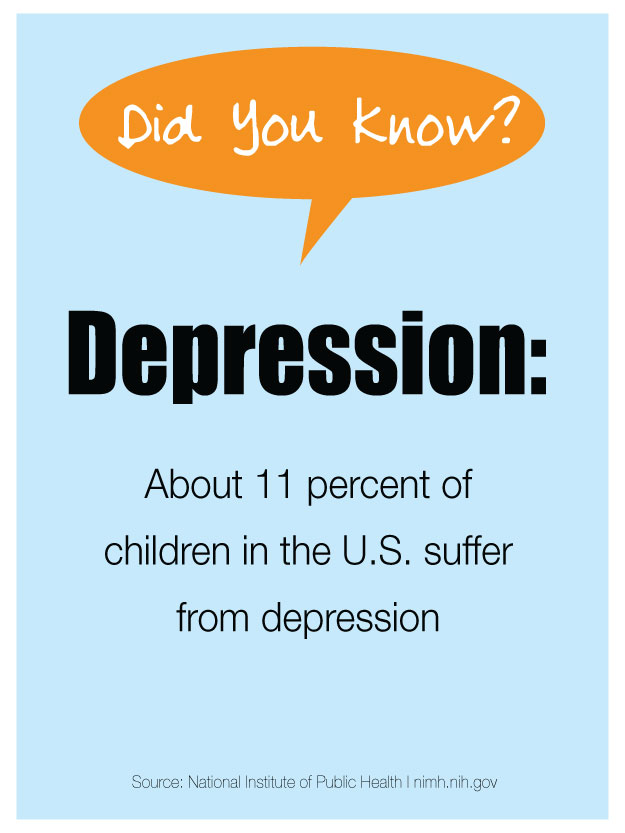
Do Children Suffer from Depression?

Yes, kids do get depressed. And similar to adults, treatment can be critical, if not life saving.
Practically every child or teen has blue moments, especially if the dog dies, a best friend moves out of the neighborhood or a school bully demeans them. Just because a child seems sad doesn't necessarily mean he is depressed. But sadness that lasts days and weeks; disruptive behavior that lashes out upon others or indications of cutting or mutilation signal depression.
If these or other disruptive behaviors interfere with your child's normal social activities, interests, schoolwork or family life, it may point to a depressive illness.
While depression definitely exists in some younger kids, it's much more common in teenagers, according to experts. Finding help at the early stages could save a family years of anguish. It could save the child's life.
Although depression is a serious illness, it is also a treatable one if addressed early


Warning Signs of Depression
- Frequent feelings of sadness and hopelessness
- Sustained irritability
- Lashing out without provocation
- Changes in appetite -- either increased or decreased
- Changes in sleeping patterns -- sleeplessness or excessive sleep
- Vocal outbursts or crying
- Difficulty concentrating
- Physical complaints like stomachaches, headaches that don't respond to treatment
- Withdrawal from events and activities at home or with friends, in school,
- extracurricular activities, and in other hobbies or interests
- Expressing feelings of worthlessness or shame
Worth Talking About
A Rap Artist Parents Can Applaud
It can be easy to put all rap songs – and rappers – into the same basket.
Worth Talking About
Why Not Play More?
TEDx Talk guest lecturer Dr. Peter Gray asks the question: why not play? According to Gray, over the past 60 years there has been a gradual but, overall dramatic decline in children's freedom to play with other children, without adult direction in the U.S. Over this same period, there has been a gradual but overall dramatic increase in anxiety, depression, feelings of helplessness, suicide, and narcissism in children and adolescents. Based on his own and others' research, Gray documents why free play is essential for children's healthy social and emotional development and outlines steps through which we can bring free play back to children's lives.
Take Action
...at Home
Understanding Why Teenagers Are So Depressed
Contributed by Big Think
Take Action
...at School

Teen suicide: Prevention is contagious, too
Every day, 10th-grader Bridgett Marsh takes a look at her growing list of "reasons to live." Posted right next to her bed, it's a colorful jumble of names – family, teachers, friends, her cats – and some "really small things, but they matter a lot," she says. "The smell of campfire smoke ... party hats ... climbing trees."
Take Action
...in the Community
STUDY: INTERVENTION IN PRIMARY CARE BETTER FOR DEPRESSED TEENS
About 20 percent of teens will experience depression before they reach adulthood. Studies show most of the depressive episodes happen between the ages of 12 and 17.
Many just don't get the help they need, but now a new report finds pediatricians can effectively treat depression in kids with the right strategy.
Warning: count(): Parameter must be an array or an object that implements Countable in C:\inetpub\webroot\theweigh\templates\protostar\html\com_k2\pg_content\category.php on line 265





